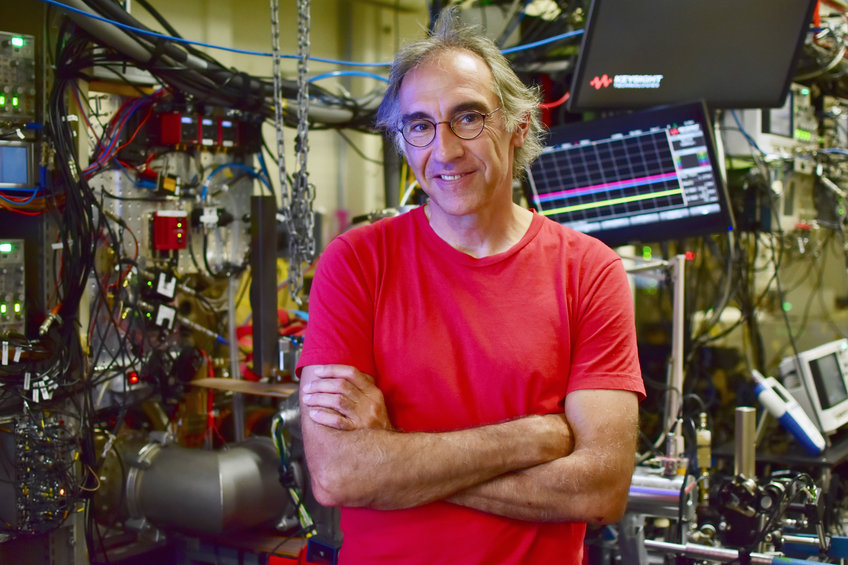
“I try to contribute ideas and motivate”
Thomas Udem is a professor at LMU Munich and one of the longest-serving members of the laser spectroscopy research group led by Nobel prize winner Theodor Hänsch.
He has supervised many doctoral students and was even dissertation advisor for some of them. His motto: just let them get on with it.
Professor Udem, you spent your whole academic career at MPQ, it is 26 years that you have been working here. Isn’t that unusual for an academic career?
It is, to be sure. I could have gone elsewhere, but I never had any reason to leave. I always had the chance to do exactly what I wanted, and under the best possible conditions.
What do those conditions look like which make one to not wanting to leave?
I’m in the team led by Theodor Hänsch, and he has the philosophy to just let everyone get on with it. Finding the best people and just letting them get on with it, that’s his formula. Recently, I spoke with an excellent researcher who completed his dissertation at MPQ many years ago, a career jumper from theoretical physics. He told me what his time at MPQ was like at the beginning. At first, he sat in his office and read a paper and waited for someone to come tell him what to do. But nobody came. At some point he figured it out and asked for a lab (laughs). What I want to say is: some people can’t deal with this kind of freedom and therefore don’t belong here. Some, like the researcher I just mentioned, initially have problems with the freedom they are given, but then get their act together. And some, like me, enjoy the freedom they have from the start.
You yourself have to supervise PhD students now. What did you take on board from this kind of leadership?
I have basically taken over the tradition. The motto “find good people and just let them get on with it'' is still valid. When I have to consider whether someone fits in with the group I always ask them whether they can work independently. That’s a core requirement. In the case of Bachelor or Master projects that doesn’t apply yet. In those cases, you can set smaller projects with clearly defined tasks. But doctoral students have to organise their thesis, and postdocs have to come up with the topic they want to work on themselves. Then they can work in whatever way they like.
But with all this freedom, isn’t there the risk that everyone works for themselves and loses track of the larger common goals?
Yes, freedom can be tricky. If everyone does the same, the result is monoculture. You can destroy creativity with the wrong working conditions. On the other hand, you are right, you have to channel the research, in order to get common results. Most of the time that happens without any outside help. I will give you an example. We currently have a team of two postdocs and one doctoral student who are developing a machine together. The two postdocs are working on the development of the laser source, the doctoral student on the ion trap. They are working closely together and we swap ideas. But they have absolute freedom to conduct their research in whatever way they want, the doctoral student, too. It would be a big mistake to tell him what to do because he has such great ideas that I would only hold him back if I interfered too much.
If you don’t interfere, then what does supervision look like?
I try to contribute ideas and I try to impassion and motivate, that’s all.
What are the key requirements for any doctoral student who wants to do their thesis under your supervision?
He or she needs to be passionate about all topics. Motivation is very important. We do precision measurements that are very exhausting. At uni you only study the theory of how things should work. If you do research with us, you’ll spend most of your time trying to find out why something doesn’t work the way it should. Occasionally, that is quite stressful, that’s why you have to be really passionate about what you do. As I said before: I always have a close look who fits well with us and who doesn’t. But we have open doctoral positions, so I can only encourage interested students to apply. By the way: excellent grades aren’t that important. Often, those who don’t always have the best grades make the best researchers.
You work in a predominantly male environment. How about female doctoral students?
Until now, we have had only few female doctoral students, but we strongly encourage female students to apply. I believe that chances are very good for female physicists in academia, so it’s definitely worth it!
(AE/KJ)











